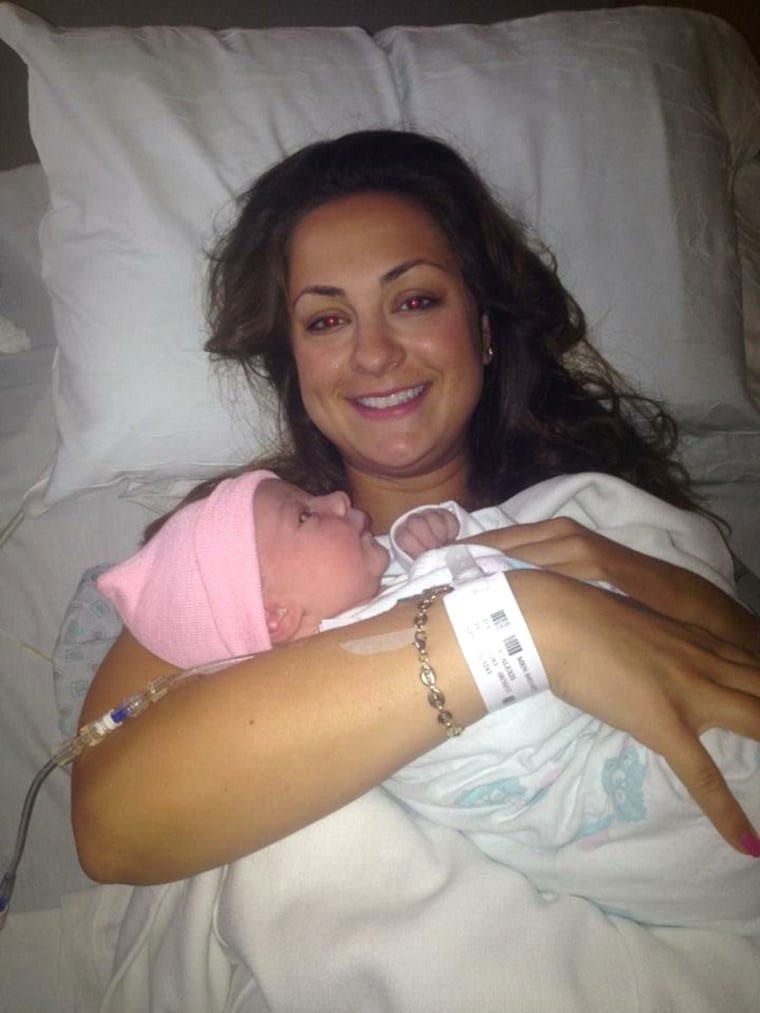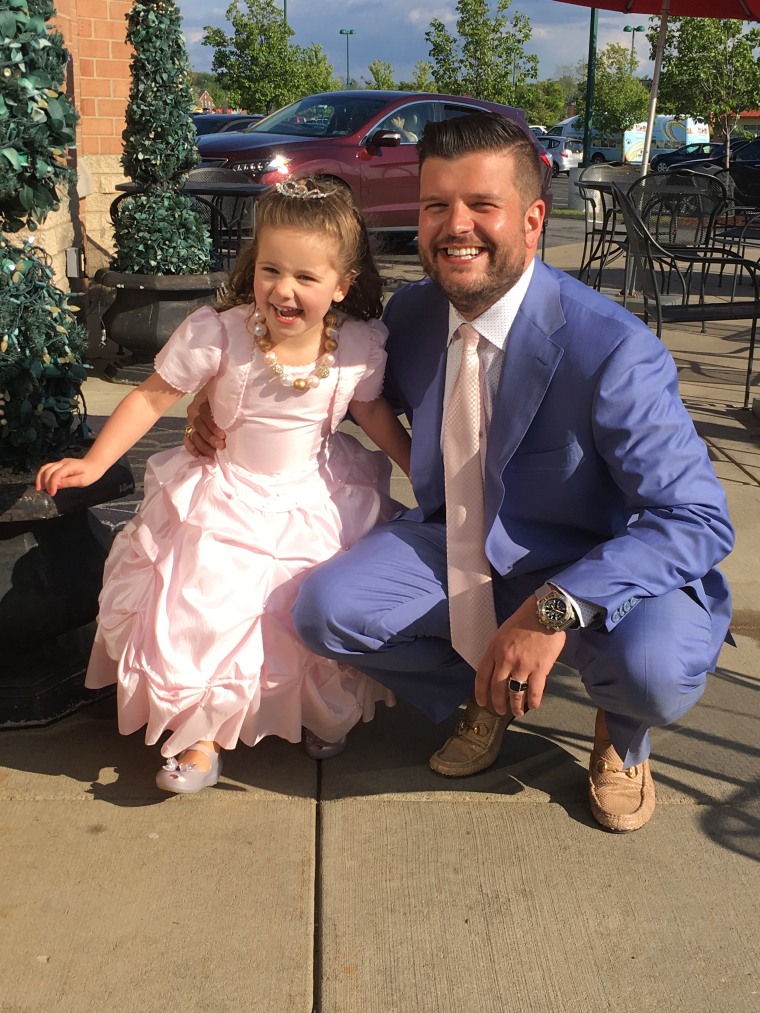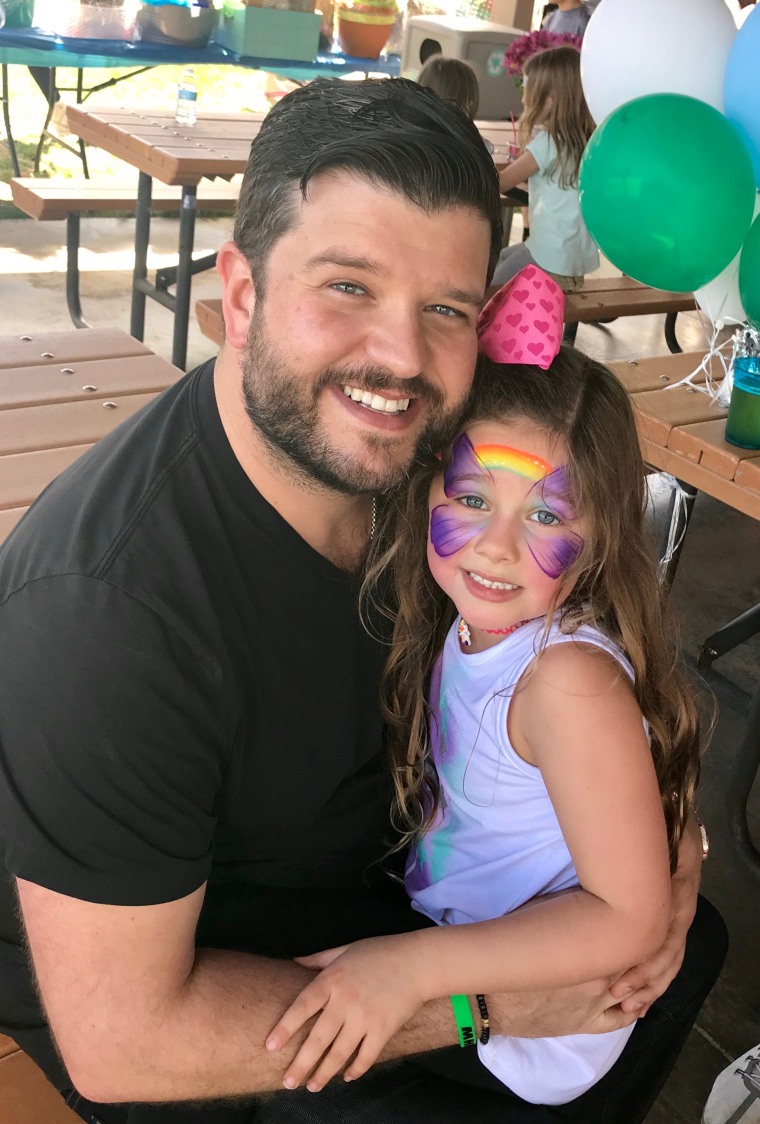This story discusses suicide. If you or someone you know is at risk of suicide please call the U.S. National Suicide Prevention Lifeline at 800-273-8255, text TALK to 741741 or go to SpeakingOfSuicide.com/resources for additional resources.
After Alexis D'Achille experienced a traumatic delivery where her daughter, Adriana, initally couldn't breathe, she seemed to change. Her husband, Steven D’Achille, gazed at Alexis and saw she looked lost. Suddenly, his vibrant, happy wife seemed overwhelmingly sad.
“It was the beginning of the end,” Steven D’Achille, 36, of Pittsburgh, told TODAY Parents.
When they returned home, Alexis still seemed detached and struggled with the demands of new motherhood. Adriana cried constantly and Alexis never took naturally to breastfeeding.
“Alexis would just cry and cry and say, ‘I can’t do this,’” D’Achille said. “I would find her on the closet floor, on the ground, crying her eyes out.”

Alexis knew she had more than just first-time parent jitters and sought help. Doctors reassured the couple that Alexis had the “baby blues” and she’d soon feel better. But Alexis never improved. They visited seven different crisis centers and hospitals to get help for Alexis.
D’Achille later learned his wife had postpartum psychosis, a rare but extremely serious postpartum mental condition that causes delusions, hallucinations and often results in death by suicide according to Postpartum Support International. Most people are only familiar with postpartum depression and remain unaware that other mental health conditions, including postpartum anxiety, psychosis or OCD, also manifest during this period.
At the time, her doctor doubled her antidepressant medication but Alexis, who called her husband by the nickname, “Pop,” felt the medication made her worse.
“She said ‘Pop as soon as I got on the (medication) it is making me have all these bad bad thoughts,’” D’Achille recalled.

The final time Alexis asked for help was on their wedding anniversary in October 2013. Alexis begged D’Achille to go to a hospital where she told the doctor that she had thoughts of dying by suicide and had a plan. But the doctor told Alexis she’d feel better at home.
“The doctor pulled me aside and said, ‘She is going to be fine,’” D’Achille recalled. “I can’t believe I was stupid enough to listen to him.”
The next morning, Alexis attempted suicide. When D’Achille woke and saw his wife wasn’t in bed he knew something was wrong.
“I could hear the baby crying downstairs, hysterical. My heart just hit the floor and I knew something bad had happened,” he said.
D’Achille called 911 and performed CPR on her. The paramedics took her to the hospital and she lingered on life support for two days before dying. Adriana was six weeks old. As grief and anger overwhelmed D’Achille, he locked himself in a bathroom and sank onto the floor. He felt he had to make meaning out of this.
“How is it possible there are no resources for moms when they have a baby? This is so unfair,” he said.
He decided to devote himself to changing postpartum mental health care so others families wouldn’t experience what his did.
“I want to fix the problem,” he said. “My daughter isn’t the only kid without a parent and I’m not the only husband without a wife (because of suicide).”
A new approach to women’s mental health.
D’Achille started a nonprofit, The Alexis Joy Foundation, and began working with Allegheny Health Network and Highmark Health in Pittsburgh to create a new kind of facility, the Alexis Joy D’Achille Center for Perinatal Mental Health. The center takes a different approach to perinatal and postpartum mental health by providing two levels of care. There’s an outpatient therapeutic program where women meet with a therapist weekly. But there is an intensive program that involves three-hour sessions three days a week and includes mother-baby interaction.
“Women are far more engaged whenever the baby is involved,” Dr. Sarah Homitsky, medical director of Women’s Behavior Health at the center, told TODAY. “If you treat a mom without a baby there is a higher rate of relapse.”

This means staff help a mom with postpartum anxiety learn how to manage her anxiety in the moment, for example. There are numerous programs to foster bonding including infant massage, baby wearing, mom and baby yoga and plenty of space for breastfeeding.
“Pittsburgh is the safest city in America for moms,” D’Achille said.
He feels glad that his wife’s legacy is one of helping others.
“She would be really proud,” he said. “I think about the lives these children get, a normal life, because of the services we offer.”
This story was originally published in May 2019.